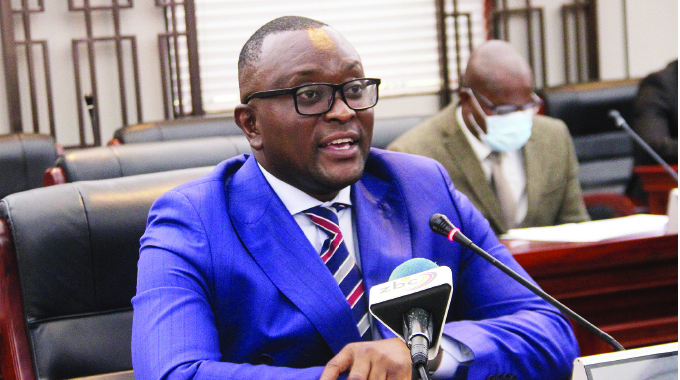Source: 75pc internet penetration by 2025 | The Herald
Herald Reporter
The internet penetration rate is expected to rise to 75,4 percent by 2025, as the Government moves to ensure improved access and usage of ICTs during the National Development Strategy 1 (NDS1) period, ICT, Courier and Postal Services Minister Dr Jenfan Muswere, has said.
Dr Muswere said this during Dandemutande’s 25th anniversary dinner in Harare recently.
The NDS1 runs from 2021 to 2025.
In 2020, the internet penetration rate in Zimbabwe was 59,1 percent and the Government intends to ramp up the penetration rate by over 15 percent in the next two years.
Further, the mobile penetration rate is expected to grow from 94,2 percent to 100 percent by 2025.
Dr Muswere said Dandemutande was expected to contribute to the growth trajectory by expanding its network to include the under-served areas and bringing in international bandwidth to achieve the targeted internet penetration rate.
“I have been informed that the company is currently working on co-building the Harare-Beitbridge fibre backhaul infrastructure with Bandwidth Cloud Services,” he said.
“This project will position Zimbabwe as a viable bandwidth transit route, a destination for many ICT carriers worldwide.
“It will also help bring the cost of bandwidth to an affordable rate.”
The Ministry of ICT, said Dr Muswere, believes in cloud computing and other cloud services.
He said data protection and sovereignty issues become critical as more companies migrate to cloud systems.
“Dandemutande’s investment in the data centres shows commitment to this national objective. I visited their state-of-the-art data centre in Harare, which I believe is one of the first in Zimbabwe,” he said.
To date, Dandemutande has established four data centres in Harare and Bulawayo.
Established in 1997, Dandemutande is marking the 25 years of existence under the theme, “Celebrating 25 Years of Innovation”.
Dr Muswere said the Covid-19 pandemic had accelerated digital transformation across the economy, as it discouraged gatherings when it broke out.
The Second Republic led by President Mnangagwa has identified ICTs as a critical enabler to attaining an upper middle income economy by 2030.
This is expected to usher in a digital economy and improve service delivery to citizens through e-government, e-learning, smart agriculture, smart cities, and smart manufacturing, leaving no one and no place behind.
One of NDS1’s priorities is efficient infrastructure delivery and overall socio-economic development.
Dr Muswere said ICT is a critical sector that needs ongoing restoration and expansion.
“I am proud to say that Dandemutande has understood this vision and has been contributing to it from 1997 to date.”
“As part of the attainment of universal access by 2030, Dandemutande connected 904 schools in 2017 working with ZARNET, and this year, 1 150 Government sites in the form of 746 schools, 52 centres housing people with disabilities, and 352 police stations across the country.
“This move is a step toward achieving universal internet access in our country. It improves education delivery in the school and enhances policing and communication in the various areas where these police stations are,” said Dr Muswere.

COMMENTS